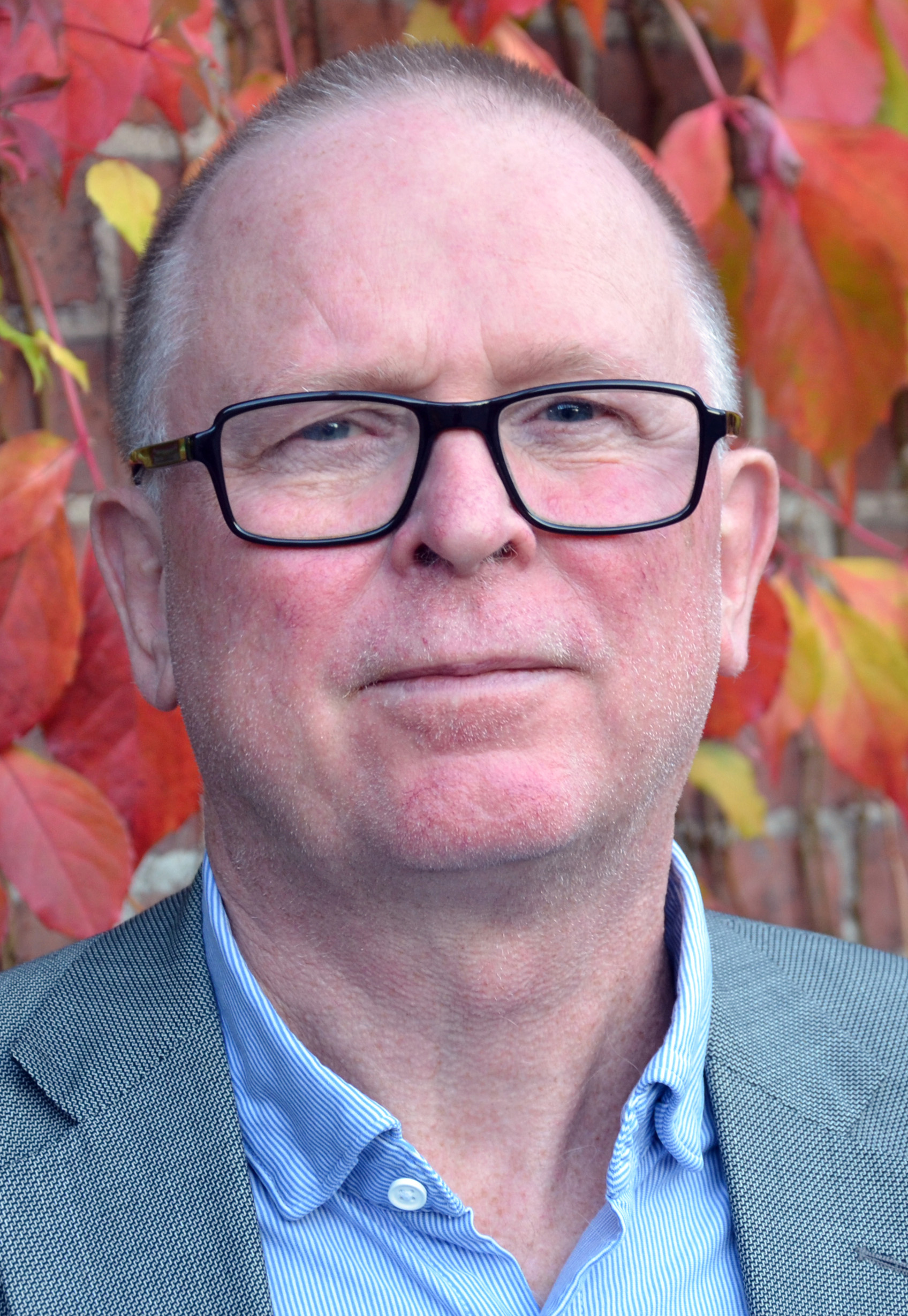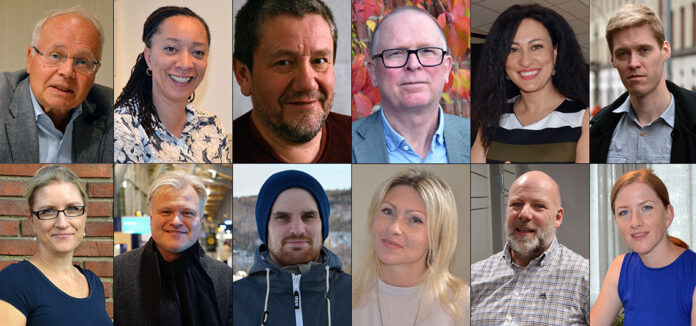(THIS ARTICLE IS MACHINE TRANSLATED by Google from Norwegian)
I recently launched the book You will suffer for the community – how Norwegian Jantelov has led to 800 inhabitants with social anxiety. I take for granted jantelaw and Norwegian conformity. A lot of research points in the same direction – Norwegian culture is one of the narrowest in the world, and most Norwegians are afraid to use their freedom of expression, for fear of being socially excluded. In the book, I refer to research, statistics and non-fiction. I also present 12 in-depth interviews with both professionals and people who have themselves been exposed to the Jante Act.
Norwegian culture is one of the narrowest in the world.
Some of these are ethnic Norwegian people who for various reasons are seen as "different". They encounter ejection mechanisms that will "put them in place". Immigrants' experience of moving to Norway is also a central theme in the book. The common denominator for these stories is that they encounter a culture that thinks it is better than everyone else.
Left-wing nationalism
It is worth noting that immigrants meets nationalism from both the culturally conservative right and the left, which praises the Norwegian state and the Norwegian solutions. A good example of the left's nationalism is Harald Eia's program series That's how Norway is, which is broadcast on NRK. Here he states that Norway is «the world's most successful society», and Atle Antonsen stops by in program five of the first season and asks the question: «We are the best. Why does not everyone do as we do? ” The Norwegian independence from parents, the opposite sex, the family, people in public transport and so on are presented as "correct", without any recognition that this can also have some problematic aspects. Research from Pew Research Center shows that Norwegians reach the top of Europe in nationalism. Eia concludes one of the programs that one "can be complacent and tolerant at the same time" – but there is little indication that tolerance is a result of Norwegian complacency.
Stigmatization of immigrants
 I You will suffer for the community we meet, among others, the Russian Janna Johnsen, who has lived in Norway since 1993. She says that she has been completely broken because her background is constantly being downgraded: «I think that Norwegians have an unvarnished negative image of Russia. Most of what is written about Russia is black paint. Not a nice word is said about Russia. (…) One is actually broken down in the end. " Johnsen talks about Russian welfare schemes that are far more lucrative than the Norwegian ones, and tries to remind us that all countries have positive and negative sides – including Norway.
I You will suffer for the community we meet, among others, the Russian Janna Johnsen, who has lived in Norway since 1993. She says that she has been completely broken because her background is constantly being downgraded: «I think that Norwegians have an unvarnished negative image of Russia. Most of what is written about Russia is black paint. Not a nice word is said about Russia. (…) One is actually broken down in the end. " Johnsen talks about Russian welfare schemes that are far more lucrative than the Norwegian ones, and tries to remind us that all countries have positive and negative sides – including Norway.
 The American family therapist Alicia Partee feels that she must fight to retain her distinctive character in the face of Norwegian culture. She believes that Norwegians expect assimilation, ie that immigrants must put aside their own culture and values in order to become «Norwegian»: «Many times cultures that are not stigmatized and painted black do not have the same values as Norwegian society. In order to achieve real integration, one must keep in mind that it is a two-way learning process ", she believes. She describes Norwegian society as conformist, and says that she almost "breaks her neck trying to fit in".
The American family therapist Alicia Partee feels that she must fight to retain her distinctive character in the face of Norwegian culture. She believes that Norwegians expect assimilation, ie that immigrants must put aside their own culture and values in order to become «Norwegian»: «Many times cultures that are not stigmatized and painted black do not have the same values as Norwegian society. In order to achieve real integration, one must keep in mind that it is a two-way learning process ", she believes. She describes Norwegian society as conformist, and says that she almost "breaks her neck trying to fit in".
Czech Nicol Mard struggled for so long to get a job here in Norway, that she eventually started her own business – which works with employing immigrants. Norwegian nationalist indoctrinating May 17 speeches and tributes to "the Norwegian nation" remind her of the Soviet era in the Czech Republic.
"Peace Nation"
 I You will suffer for the community psychiatrist Fred Heggen analyzes Norwegian culture: In a few decades, Norway went from being poor and with inferiority complexes, to arrogance and a totally unrealistic view of its own nation as the world's best, peace nation and global savior. Heggen describes a number of failed international mediations and operations, where one has not been able to take self-criticism afterwards. He describes Norwegian culture as group narcissistic – and recommends that one should work to get a truer and more balanced self-image.
I You will suffer for the community psychiatrist Fred Heggen analyzes Norwegian culture: In a few decades, Norway went from being poor and with inferiority complexes, to arrogance and a totally unrealistic view of its own nation as the world's best, peace nation and global savior. Heggen describes a number of failed international mediations and operations, where one has not been able to take self-criticism afterwards. He describes Norwegian culture as group narcissistic – and recommends that one should work to get a truer and more balanced self-image.
 Professor Nina Vitoszek writes in The best country in the world. A Pamphlet (2009) that Norwegians over several centuries have built up a story about themselves as the sober aspirant who eventually received his reward: “First you create a charismatic story about the best, most virgin and peaceful tribe in Europe. It is reinforced with a folk tale about luck and wealth as a reward for being good and kind. Then you repeat both stories to boredom. Finally, the fact that Norwegians are rewarded with oil wealth and a nation of peace in the world is taken for granted. " Attempts have been made to develop a society that is "better" than other European models in order to show its distinctive goodness. Witoszek also points to logical flaws in Norway's view of itself as a peace nation and human rights activist: “It does not matter that Norway has spent twice as much money on warfare as on peace-making in Afghanistan. And it is irrelevant that we wonder about the losses of Norwegian peace and aid experts in Sri Lanka or Bangladesh. Our – and the outside world's desire to see Norway as a country that embodies all the best – peace, human rights, sustainable development and democracy – is so great that Norwegians have been have to stay the mecca of the world for cozy virtue. "
Professor Nina Vitoszek writes in The best country in the world. A Pamphlet (2009) that Norwegians over several centuries have built up a story about themselves as the sober aspirant who eventually received his reward: “First you create a charismatic story about the best, most virgin and peaceful tribe in Europe. It is reinforced with a folk tale about luck and wealth as a reward for being good and kind. Then you repeat both stories to boredom. Finally, the fact that Norwegians are rewarded with oil wealth and a nation of peace in the world is taken for granted. " Attempts have been made to develop a society that is "better" than other European models in order to show its distinctive goodness. Witoszek also points to logical flaws in Norway's view of itself as a peace nation and human rights activist: “It does not matter that Norway has spent twice as much money on warfare as on peace-making in Afghanistan. And it is irrelevant that we wonder about the losses of Norwegian peace and aid experts in Sri Lanka or Bangladesh. Our – and the outside world's desire to see Norway as a country that embodies all the best – peace, human rights, sustainable development and democracy – is so great that Norwegians have been have to stay the mecca of the world for cozy virtue. "
Narrow social framework
Despite the Norwegian self-image of an unusually kind nation, both research and those I have interviewed tell of narrow social frameworks and a strict society. This is confirmed by the French lawyer, author and blogger Lorelou Desjardins. In a column published on NRK in December 2020, she believes that strict social control in Norway is a good protection against infection: "In Norway, it is important to follow all the rules to the letter. Norwegians like to be social police for everyone around them. (…) Norwegians are silent about the neighbor. Social control is Norway's best infection control. (…) The social control is much higher in Norway than in any other country I have lived in. "[1]
Canadian Julien S. Bourrelle, who has published books with line drawings about Norwegian culture, also describes Norway as a demanding country to move to. In the book Norwegians (2017) it is said about Bourelle that he has lived in six other countries and adapted to their lifestyle and culture, but moving to Norway has so far been the «most culturally challenging experience in his life».
Light, happy, positive and playful
Having traveled extensively and lived in Australia, Uganda and South Sudan, I have for my own part concluded that Norwegian culture is special: Worldwide, it is normal to greet people, even if you do not know them. You do not go further than to Germany or France, before of course you greet people when you enter a waiting room – instead of pretending not to see that there are people there. It is normal for casual conversations with people to be easy, happy, positive and playful. It is normal to be able to have a heated discussion on a topic, without losing friendship because you have different opinions. It is normal to be religious, and not very problematic to belong to different religions.
When we are challenged by inequality, we can realize that people from other cultures have a lot to learn about community and how to thrive together. That does not mean we need to destroy ourselves.
The best meetings between people happen when all parties come as themselves. I encourage Norwegians to dissolve in a conformist culture with such a narrow normal area that there is no room for either Norwegians who are "different", or people with a different cultural background. As family therapist Alicia Partee points out, a salad with many different ingredients can be better: "You could use only lettuce leaves, but if you add tomatoes, onions and several other things, it tastes much better."
[1] Desjardins 2020, When I became a quarantine police officer, NRK Statement, December 28, seen January 8, 2021,


